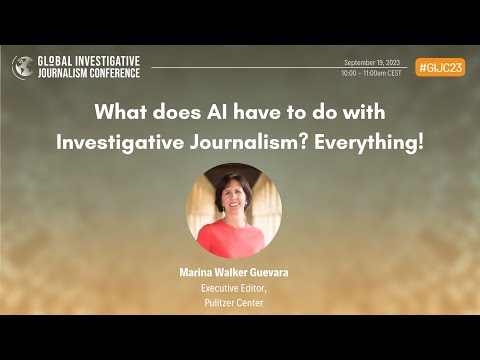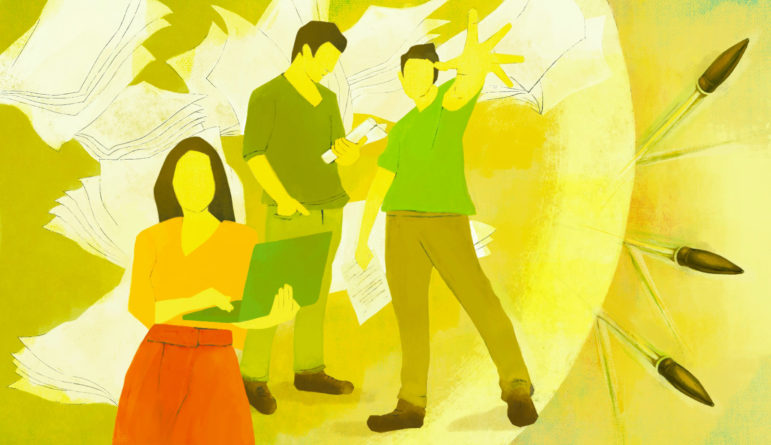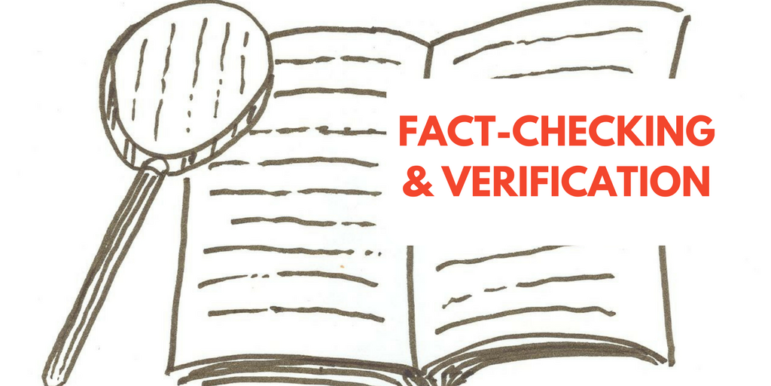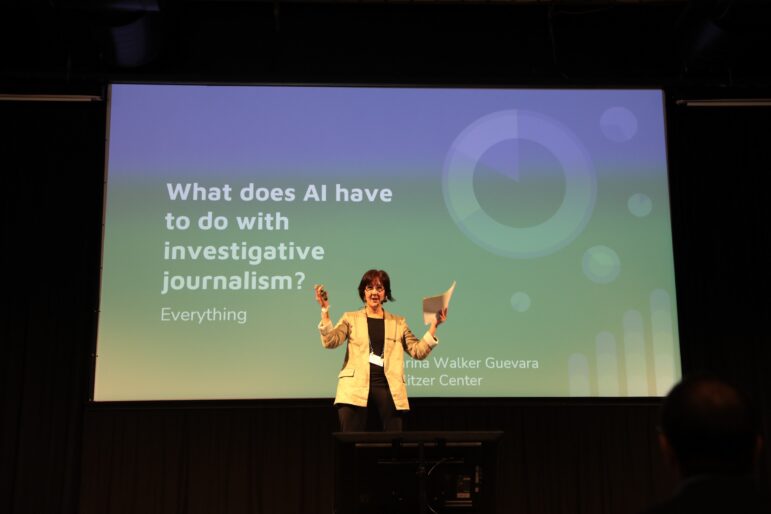

Image: Shutterstock
How Journalism Groups in Africa Are Building AI Tools to Aid Investigations and Fact-Checking
Read this article in
The spread of mis- and disinformation in Africa has seen everything from outlandish conspiracy theories to falsehoods about vaccines to dubious political messaging reach people across the continent. False information has incited violence and spread racist, misogynistic, and xenophobic messages, while an erosion of trust online has paved the way for fabricated content, including that which serves the political agendas of those spreading falsehoods, to thrive in an already uncertain information environment.
Often these messages are spread on social media platforms like WhatsApp, and social media use in the region is surging. According to the Africa Center for Strategic Studies, 300 million people on the continent have started using social media in the last seven years, and Africa’s 600 million internet users are among the world’s highest consumers of news via social media.
That same African Center for Strategic Studies report also documented 189 disinformation campaigns across the continent in 2023, a 300% increase from the 2022 figure. And people in Nigeria and Kenya — major African countries that take the lead in terms of daily social media usage — share the highest concerns about misinformation, according to the Reuters Institute’s 2022 Digital News Report.
It is in that context that a number of African investigative journalism organizations are developing AI tools and resources to enhance the effectiveness of fact-checking and watchdog reporting. Here we spotlight some of those being developed in sub-Saharan Africa — two of these AI tools can be used to tackle mis- and disinformation, while a third combines artificial intelligence with storytelling and data analytics to help reporters do their job more efficiently.
MyAIFactChecker Tool
Research shows false news spreads six times faster than accurate news on social media. To counter this, a team developed MyAIFactChecker, an AI-powered tool that enables users to swiftly and accurately verify news, social media posts, and other digital content.
It was created by the Brain Builders Youth Development Initiative (BBYDI) through its Nigerian fact-checking arm, FactCheckAfrica, and launched in 2024, and leverages advanced AI to verify information and swiftly curb the impact of false claims.
“MyAIFactChecker has been effectively used in newsrooms to enhance fact-checking, especially during critical events like elections and public health crises,” said Habeeb Adisa, head of programmes at the Brain Builders Youth Development Initiative. The tool is also being introduced to reporters through workshops, fellowships and digital rights training programmes, with a “focus on integrating the tool into daily news practices to enhance the accuracy of news coverage.”
Toheeb Babalola, a freelance journalist who reports for Nigeria’s Premium Times, discovered MyAIFactChecker after attending a training session in southwest Nigeria’s Oyo State. “We were given a test run during the training, and I’ve been using it ever since,” he told GIJN.
One of his first experiences with the tool was for an education story. He asked it to find data on out-of-school children in Nigeria, and it pulled up sources from the World Bank and the United Nations. “I just typed in something like, ‘provide relevant data on out-of-school children in Nigeria,’ and it worked,” Babalola recalled. “The credibility and ease of use were impressive.”
Though he sees room for improvement, especially in integrating the app with popular platforms like WhatsApp, Babalola believes MyAIFactChecker could be a game-changer for investigations. Its reliance on reputable news outlets ensures accuracy, though it’s limited if no trusted sources have published on a specific claim.
However, other challenges remain. High development costs for the tool related to subscriptions, hosting, and APIs are ongoing issues for FactCheckAfrica (the tool is free for anyone to use). Additionally, minimizing hallucinations from the generative AI model has been difficult, sometimes resulting in inaccurate or misleading outputs, which necessitates thorough verification of the tool’s initial results. Ensuring the AI understands nuanced contexts and improving its ability to detect language and speech variations, particularly in African accents, require continuous refinement.
Dubawa AI Chatbot and Audio Tools
In May 2024, Dubawa, a project of the Centre for Journalism Innovation and Development (CJID) in Nigeria, introduced both an AI-powered chatbot and audio platform to enhance fact-checking efforts.
The Dubawa Chatbot is designed to provide accurate, real-time responses to claims or questions, aiding individuals and journalists in their investigations. Unlike AI tools like ChatGPT, which lack access to real-time internet data, the Dubawa Chatbot, which is embedded into WhatsApp, can retrieve up-to-date information from the web. The Dubawa Audio Platform can monitor radio programs, transcribe them, and extract verifiable claims. This feature addresses the challenge of tracking undocumented claims made on live radio, which are often difficult to verify.
Silas Jonathan, research and digital investigations manager at Dubawa, explained the motivation behind it. “The rapid spread of disinformation, especially on live radio and social media platforms like WhatsApp, create significant challenges for fact-checkers. The Dubawa AI tools were developed to help people access reliable information easily and make informed decisions,” he tells GIJN. He said the tool has registered over 1,000 users in the past few months.
Rejoice Taddy, an investigative journalist with Prime Progress Nigeria, shared her experience using the tool in a recent investigation. She recalled an incident where a misleading audio clip was circulating on Facebook, claiming that the minister of Nigeria’s Federal Capital Territory had threatened to kill electoral officers if they didn’t comply with his demands.
“At first, I tried to use Slack to transcribe the audio, but it didn’t work because the audio was unclear,” Taddy explained. “Thankfully, Dubawa’s Audio AI tool came through, accurately transcribing the conversation, which included Nigerian English and Pidgin. It saved me a lot of time and allowed me to focus on verifying the claim.”
Rejoice also found the chatbot feature incredibly useful for quick fact-checking. “When working on a story about how satire can fuel misinformation, I used the chatbot to gather multiple fact-checks on satire-related claims,” she said. “Instead of digging through the website manually, the tool quickly provided the information I needed, streamlining my research.”
However, Taddy did encounter some challenges. One case involved an audio clip mixing English and Hausa, and even the English parts were difficult to transcribe. “I had to manually transcribe it myself, but it was a learning experience,” she said. Despite this, she found the Dubawa Audio tool helpful, especially in understanding claims spoken in accents like Nigerian or Ghanaian. “It sometimes misses context or highlights claims that don’t need fact-checking, but overall, it’s a valuable resource.”
Taddy would like to see the tool’s capabilities expanded to cover more of Nigeria’s diverse languages. “False information spreads quickly in different communities, and being able to verify claims in major languages would make a huge difference,” she noted. This, she believes, would make the tool even more powerful in addressing misinformation across Nigeria.
Nubia AI Story Creation Tool
In 2022, Dataphyte Nigeria, a media research and data analytics organization, collaborated with Fedrelandsvennen, a Norwegian newspaper, to launch an AI tool called Nubia. Initially designed as an AI-powered news distribution platform, the tool aims to transform webcam, geospatial, and socioeconomic data into data-driven alerts and reports.
One of the features Nubia offers is the ability to create and manage articles more efficiently. It can automate article production, generate templates, and allow users to view and customize content directly within its interface. However, while this functionality may increase flexibility, it’s important to recognize that it depends heavily on editorial oversight and human judgment to ensure accuracy and relevance.
“Nubia AI combines artificial intelligence with storytelling and data analytics,” said Femi Amele, programs director at Dataphyte.
Users can upload raw data, ask questions, and get tailored reports and analyses. However, while Nubia can generate various outputs, such as text and visuals, its effectiveness depends largely on the quality of the data fed into it.
Nubia also helps speed up certain editorial tasks, like headline generation and data analysis. While these features can save time, especially with routine tasks, the platform is meant to complement — not replace — the critical thinking and creativity that journalists bring to storytelling.
Oluwasegun Abidoye, an investigative journalist with Dataphyte Nigeria, recently used Nubia to streamline his reporting on a data story about Nigeria’s electricity distribution “I wanted a fresh perspective on the data, and Nubia was really helpful in giving me that,” he explained said. The AI tool wasn’t just a time-saver, he added. “Nubia handled the major analysis for the piece,” he said. “I just added my human input to craft the story in my own style, but the tool broke down every column and row of the dataset, saving me hours of work.”
“The calculations were spot-on and detailed. I just shaped the narrative to match my writing style,” Abidoye noted. “It analyzed every detail of the data for my story, making the entire process much quicker.”
Looking ahead, Abidoye suggested an improvement that could make the tool even more helpful: the ability to input multiple datasets for comparison.
Dataphyte’s Amele acknowledged some of the challenges with Nubia AI, particularly when it comes to processing different document formats and tailoring features to user needs. “We’re focused on refining Nubia AI to better handle diverse formats and optimize how resources are used for more localized reporting,” he said.
Challenges and Ethical Considerations of AI Tools
Paul McNally is a journalist, and the founder of Develop AI, a Cape Town-based organization focused on teaching journalists how to use AI effectively and responsibly and helping them to design AI projects across various sectors. He emphasizes the potential for AI to make investigative journalism more cost-effective, given the challenges of funding such work.
His team has trained reporters in newsrooms from several African countries, including major broadcasters like SABC in South Africa, NBC in Namibia, and LNBC in Lesotho, helping them implement AI in their investigative reporting. Additionally, media houses in Kenya, such as The Nation and Royal Media, have started adopting AI-driven techniques for analyzing data and uncovering complex stories.
McNally said newsrooms must confront the challenges of public perception of AI, particularly its association with “fake” content, so urges any journalists using AI in their reporting or story creation process to be upfront about it. “We strongly support transparency and declaring when AI was used in any way,” McNally said. “Finding a way to communicate it correctly for your specific audience is important.”
In this new era, he said, transparency and ethical conduct in journalism regarding the use of AI tools is more important than ever. “If a journalist operates unethically and an audience discovers this, then trust will be lost, and so will engagement, and so will revenue.”
 Abdulwaheed Sofiullahi is a journalist and researcher who covers climate change and environmental reporting.
Abdulwaheed Sofiullahi is a journalist and researcher who covers climate change and environmental reporting.












